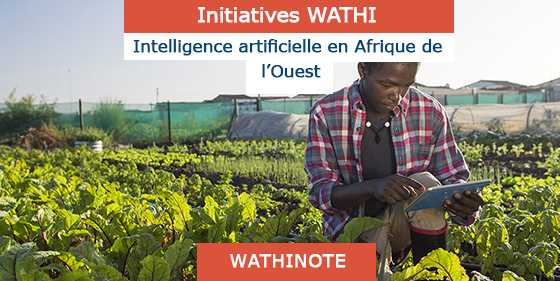

Author : Lexi Novitske
Affiliated Organization : Stanford Social Innovation Review
Type of publication : Article
Date of publication : February 2018
In Africa, the dawn of AI carries with it a fear of falling further behind more-developed economies, rather than the eager anticipation of new technology—the World Economic Forum predicts a net loss of five million jobs to AI worldwide by 2020.
But Africa need not dread the age of robotics and automation. This technology has the potential to bring myriad positive changes in sectors such as health care and finance, bridging the gap between physical infrastructure inadequacies and consumer demands, while freeing up more time for skilled labor and increased labor productivity.
The future of work in Africa
Job opportunities may not keep pace with Africa’s population growth, and robots and other technologies are a contributing factor. In light of this, “the future of work” takes on new meaning for a continent where mass unemployment and underemployment hamper economies.
While these machines may increase worker productivity, they also put downward pressure on factory wages, as the population of low-skilled workers increases in rapidly growing emerging markets. Yet the rapid spread of AI is unavoidable: Accenture Nigeria predicts that within five years, more than half of consumers will select products and services “based on a company’s AI” capabilities, rather than its brand.
Leveraging AI to Africa’s advantage
Despite the pervasive narrative that AI spells doom for Africa’s development, thoughtful planning can leverage it as a tool to help grow the country’s economies.
This technology has the potential to bring myriad positive changes in sectors such as health care and finance, bridging the gap between physical infrastructure inadequacies and consumer demands, while freeing up more time for skilled labor and increased labor productivity
Economic development depends on increasing worker productivity. For too long, African markets have been stagnant in that capacity, but AI is well poised to change that. In countries like Nigeria and Kenya, where capital is scarce but ideas are abundant, process automation can enable businesses to run on leaner models.
Moreover, rather than displacing employees, machines can empower low-skilled workers and equip them to take on more-complex responsibilities. This, in turn, can help meet an urgent need for countries lacking widespread access to education and skills training.
How leaders can support Africa’s AI innovation
African leaders must drive the continent’s digital revolution to ensure that people benefit from these technological advances.
To start, government leaders must fully understand the advantages and consequences of AI disruption in Africa, and then deliberately respond to AI integration. Two areas of focus should be encouraging a transparent and dynamic regulatory environment, and implementing extensive education reform from primary school through university.
Regulation around AI must be transparent to encourage innovation while simultaneously providing guidelines in line with international best practices. Local governments in particular must be careful not to reflexively block or overregulate AI. Local governments can also use AI to their advantage through services such as customer service chatbots, security camera footage analysis, and even self-driving public transportation.
Despite the pervasive narrative that AI spells doom for Africa’s development, thoughtful planning can leverage it as a tool to help grow the country’s economies
In the area of education, government oversight must go hand in hand with reform to ensure that citizens reap AI benefits instead of shouldering its burdens. Africa’s education systems must adapt to the needs of the near-future job market, focusing on the fields of science, technology, engineering, and mathematics (STEM) from an early age.
Investors also have a role to play in ensuring that the AI revolution benefits everyday Africans. Investors must support the long-term growth of people as well as profits. They can do this through investing in companies that use AI for social and developmental good or by partnering with civil society groups.
While AI may be a cause for concern in some African markets, it could ultimately be a boon. Beyond the social innovation AI promises for Africa, intelligent machinery and processes present a rare opportunity for economic transformation. Given Africa’s successful leapfrogging with mobile telephony and banking, it is well-positioned to tackle the AI revolution with agility and innovation.
The challenge for Africa lies not in maneuvering AI as a vehicle, but in ensuring that it has capable drivers in government, industry, and civil society.
Les Wathinotes sont soit des résumés de publications sélectionnées par WATHI, conformes aux résumés originaux, soit des versions modifiées des résumés originaux, soit des extraits choisis par WATHI compte tenu de leur pertinence par rapport au thème du Débat. Lorsque les publications et leurs résumés ne sont disponibles qu’en français ou en anglais, WATHI se charge de la traduction des extraits choisis dans l’autre langue. Toutes les Wathinotes renvoient aux publications originales et intégrales qui ne sont pas hébergées par le site de WATHI, et sont destinées à promouvoir la lecture de ces documents, fruit du travail de recherche d’universitaires et d’experts.
The Wathinotes are either original abstracts of publications selected by WATHI, modified original summaries or publication quotes selected for their relevance for the theme of the Debate. When publications and abstracts are only available either in French or in English, the translation is done by WATHI. All the Wathinotes link to the original and integral publications that are not hosted on the WATHI website. WATHI participates to the promotion of these documents that have been written by university professors and experts.
